Travel Motivations Framework
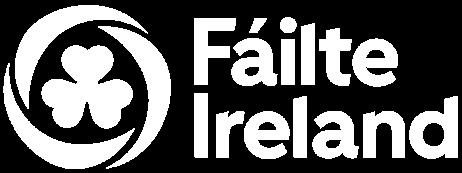






Tourists are at the heart of our work in domestic tourism. No matter what size your business is, sector, council roles, public or private etc. understanding our tourists* is a key component of our success.

Developing a motivations based framework is fundamental to this understanding. Within that, three key principles have been applied:
• Firstly, that the framework is developed off best in class research principles, from the framework applied, to rigorous and insightful research. Further, that this is based on innovative research tools and thinking.
• Secondly, that the framework must be relevant and easily applied to our everyday activities in tourism, in a manner that is both sensible and practical.
• And finally, that the framework is inspirational and provides insight into future opportunities.
We are delighted to share with you a summary of the Fáilte Ireland domestic motivations based framework in this document.
 Jill de Azevedo, Head of Consumer Planning & Insights
*In the Tourism Industry, the terminology ‘tourist’ is used when referring to people who take domestic trips. In more general terms the reference to ‘consumer’ can also be used.
Jill de Azevedo, Head of Consumer Planning & Insights
*In the Tourism Industry, the terminology ‘tourist’ is used when referring to people who take domestic trips. In more general terms the reference to ‘consumer’ can also be used.
People take many different types of trips, each with their own reasons and seeking different and unique experiences. From the warmth of reconnection to the discovery of the new, travel is driven by many motivations
While we classify the type of trips tourists take into three core buckets - visiting family and friends, to attend an event or for a holiday - these reasons often mask the actual motivations for travel.
Travel can recharge us or deliver moments of pure joy


Understanding travel motivations is vital, as they tap into the emotional structures and needs which subconsciously drive our decision making.
The critical premise is understanding that any one person / family / group can have different motivations for different travel occasions. For example, a family may travel somewhere so that they can spend time with one another away from everyday life.

In this way, travel motivations are complex and multi-faceted. They can operate differently for different people, in that firstly, different trips throughout the year will serve different underlying motives, and secondly that there may be several motivations supporting the needs of a single trip. Because of this, understanding travel in terms of demographics, while useful and practical, can be limiting.
Ultimately, it is in exploring these deep emotional needs that will allow us to identify how to best shape travel experiences and provide for longer term domestic success.
Understanding the emotional needs supporting travel decisions allows us to enhance experiences


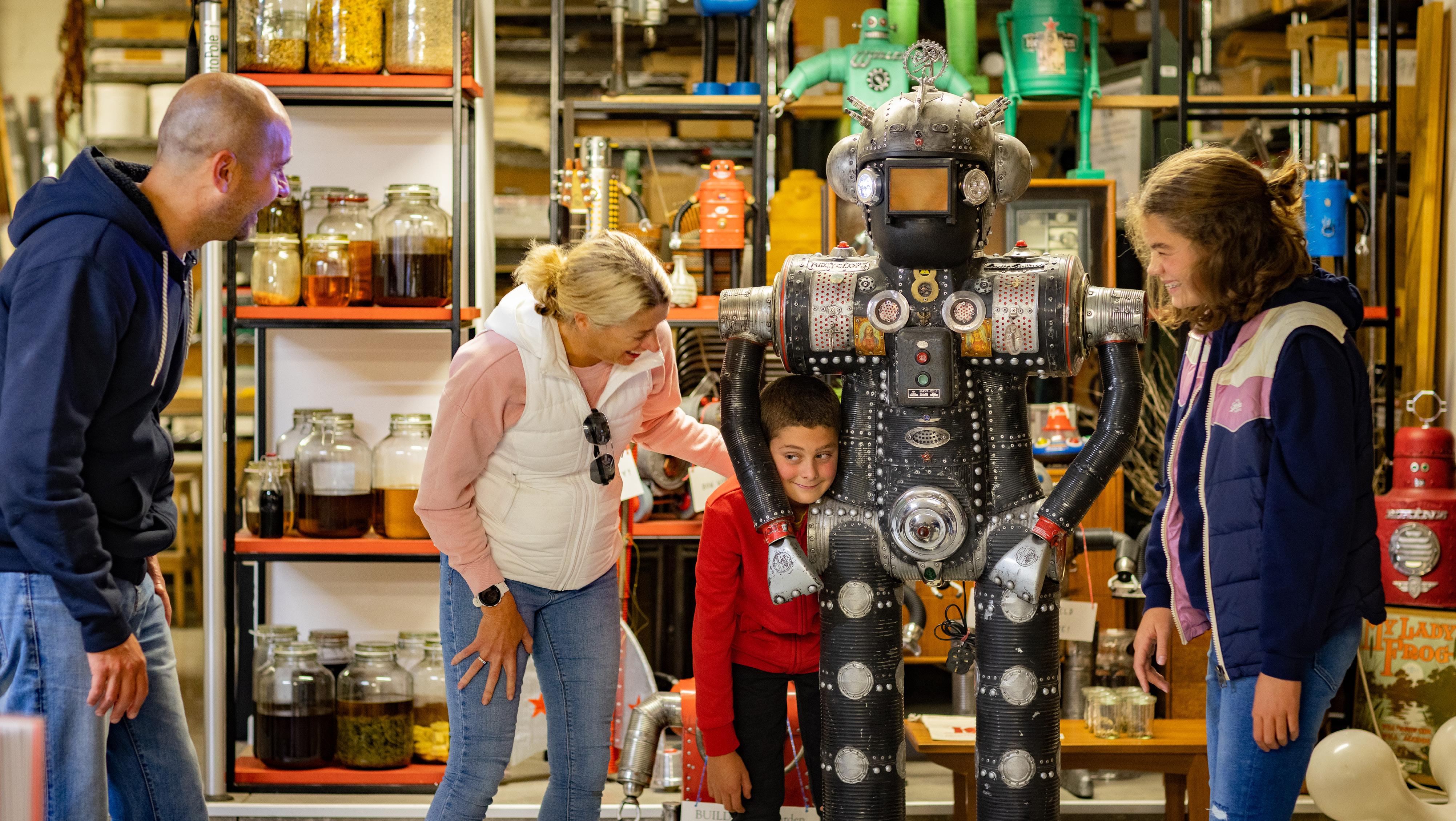

The moment of reset fundamentally underpins all motivations for travel. It is on two axes that we can integrate travel occasions and plot motivations.

Energy is needed to drive any transformation and ‘Wind up / Wind down’ moments describe whether the occasion is driven by the release or harnessing of energy. ‘Wind up’ uses the energy within, enhanced by the atmosphere created by others or expended in the pursuit of adrenaline filled activities or experiences. ‘Wind down’ draws in energy via more quiet and reflective moments, where rest is needed to replenish both physical and mental well-being.
The way we interact with ourselves, those closest to us, and the outside environment forms the ‘world’ component of reset. Some motivations are there to strengthen personal relationships and bonds, and fulfil the emotional need to have meaningful connections with others. Other motivations form at the frontier of where we meet the outside world - the discovery of new and unexplored places, the challenges which different environments present.
The energy resulting from our interactions with world, people and places, creates moments of reset
The reset focuses on “us”. It is about nurturing the bonds with those who are closest to us.
The reset feeds into the need for extra energy stimulation.

The reset is about winding down in order to rebuild the energy used in everyday life.
The reset focuses on what’s beyond the party travelling: it is about engaging in external stimulation and the world around one. Place
Examining the ‘Moments of Reset’ model in conjunction with the full range of domestic travel occasions, seven motivational states have been identified.

These motivational states are:
• Social Energy: Reset by embracing vibrant and fun experiences
• Adventure: Reset through exciting and personally challenging experiences
• Exploration: Reset by exploring new or unfamiliar places and cultural activities
• Time Out: Reset by unwinding and treasuring special moments together
• Reconnection: Reset through spending time with close friends
• Bonding: Reset by nurturing and strengthening relationships with those closest to me
• Celebration: Reset through the celebration of milestones, achievements, reunions and special occasions


Within the range of motivations, most fall directly into the heartland of tourism activities.
Exploration (17%) and Adventure (16%) speak directly to discovery, stretching domestic visitors across the country’s breadth and depth, expanding experiences.
Social Energy (20%) interweaves elements of cultural exposure, events and nightlife which are important to activities, attractions and night-time economies.
Bonding (15%), Reconnection (11%), and Time Out (11%) have a greater focus on people than places. However, the hospitality industry has a direct role here in accommodating for the specific needs of travel groups such as families, younger and unconstrained adults 45+ as each requires different facilities and services.
Of all travel motivations, Celebration (10%) falls somewhat outside the sphere of influence, as it is centred around visiting family or friends to mark a special occasion or celebrate achievements or milestones.




• An index is a measure that compares data against the baseline average. Colour coding has been applied to represent above 120 (green) / below 80 (red) average.

• Indices are helpful as they identify the ways in which groups differ from one another.
• When interpreting the indices, along with the percentages this is where we begin to see groups pull apart and understand the differentiation between each motivation.


Social Energy is about immersing oneself in the vibrancy and atmosphere created by being around people. It's about maximising experiences, whether heading out in the evening to soak in the atmosphere and nightlife or experiencing a big public event.




• Social Energy is about embracing vibrant and fun experiences.
• Positive social energy is sought in a variety of places, from being out and about during the evening, to relishing and participating in lively festivals or music events.

• Enjoying local food and drink is high on the agenda, and quieter time during the day can be spent exploring local history and culture.
• Social Energy appeals mostly to Young Unconstrained Adults, generally travelling as couples for a fun and immersive experience.
• Unconstrained Adults 45+ are also present in this motivation.







Adventure is about pushing one’s personal limits, getting a thrill out of exciting experiences and activities, and going outside of one's comfort zone. Reset through exciting and personally challenging experiences





•Adventure is about seeking exciting and personally challenging experiences.
•This motivation is not about extreme sports.

•A number of very specific activities are linked to this occasion, skewing to outdoor pursuits in particular. These activities are often quite intense in terms of either time or engagement.
•Consumers seek to be involved in one activity only, as the focus is on the depth of an experience, rather than quantity or breadth of many experiences.
•Adventure appeals to Young Unconstrained Adults.

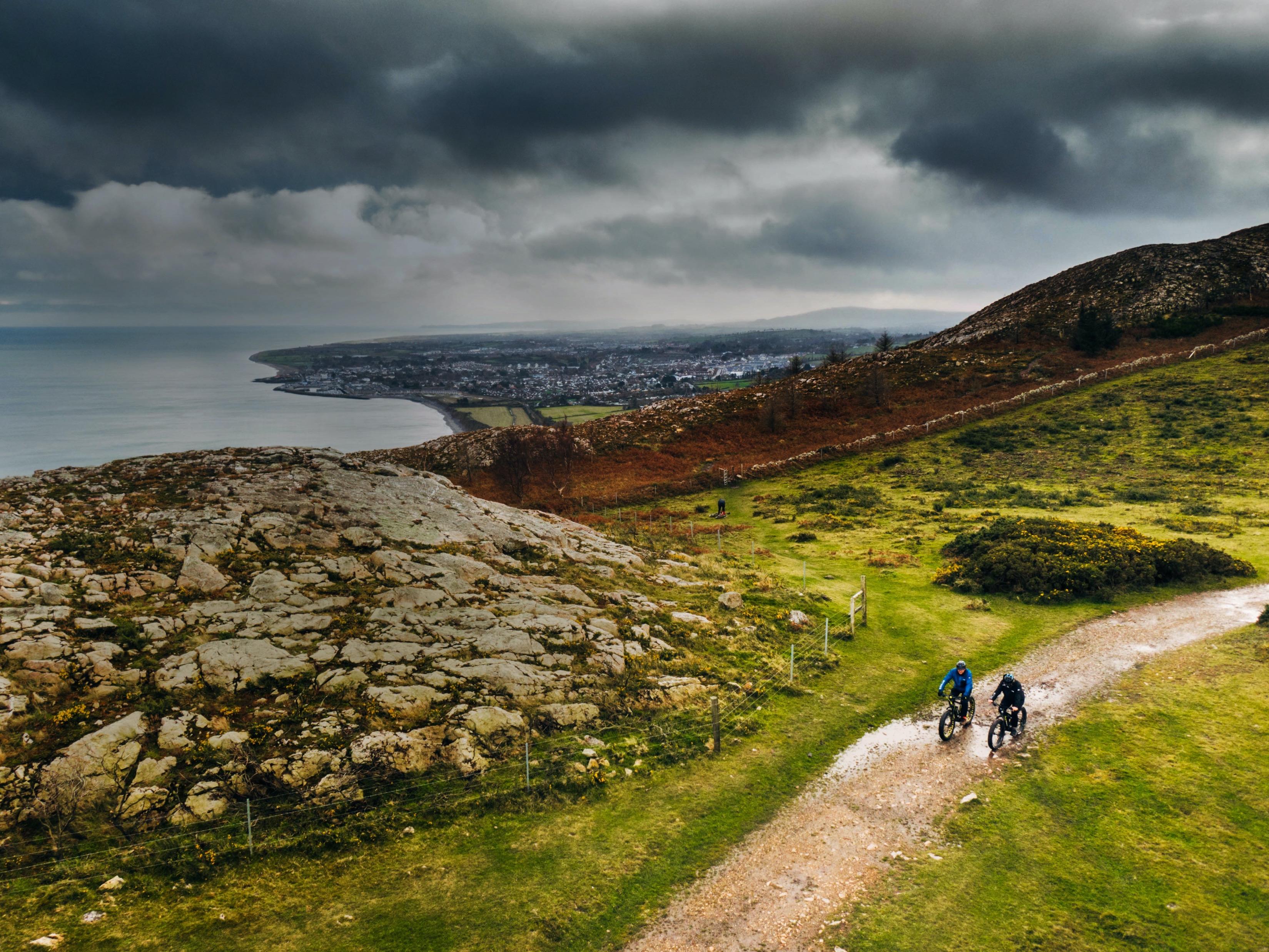





Exploration is about seeking out the new or unfamiliar, and finding hidden gems. Its heartland is discovery, whether that is landscapes, places or attractions.





•Exploration is about experiencing and exploring places, landscapes, and culture. These are all interlinked and don’t stand in isolation from one another – i.e., culture and history are place based, and usually explored together.
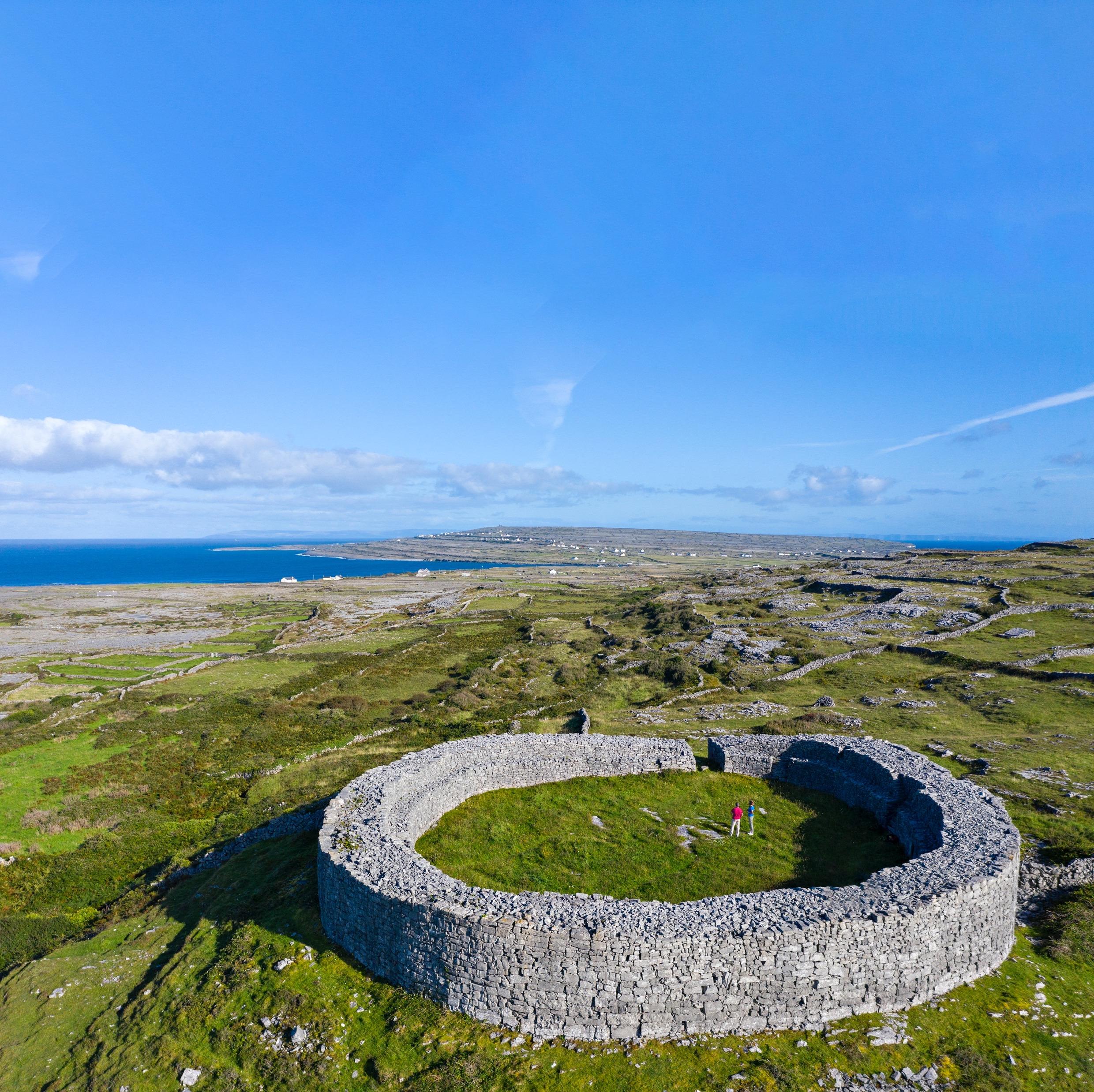
•The destination itself is the draw and is the most prominent influence when selecting where to go on a trip. For consumers, it is often a place they have always wanted to visit.
•Consumers seek to engage in a breadth of activities and attractions in which to immerse themselves and to deepen the overall experience.
•Exploration trips tend to be longer than others and enjoyed by Unconstrained Adults 45+, particularly those travelling as couples.







Time Out is about cherishing time with partners and significant others. It's a time to unwind, disconnect from daily life, and an opportunity to treat oneself.




• Time Out is about unwinding and treasuring moments with significant others.
• This low-key tone is the driver of destination choice where convenience, ease of journey and accommodation preferences are the most important decision factors.
• Consumers engage in some activities, but they are likely to be slow paced and less energetic ones.

• Trips focus on couples’ holidays or quick get-aways, and so are shorter than other trips. They are taken by couples from all age groups, whether it be Unconstrained Adults or parents of young families.


WHERE WHEN






Reconnection is about spending quality time with close friends. It's less about where this happens and more about simply being in relaxed and comfortable settings.




•Reconnection is about taking pleasure in old and familiar friendships in comfortable settings.

•Downtime is important and the occasion is mostly relaxed and unhurried. Fewer activities are engaged in compared with other occasions, although some consumers can use a public event or performance to reunite with friends.

•The people they are with are the key drivers of taking the trip. Destinations lean towards locations where family/friends are based. Accommodation is often provided by friends or family.
•Unconstrained Adults 45+, whether they be solo, couples or groups of three or more adults, over-index in Reconnection occasions.







Bonding is about creating lasting family moments and memories. It’s an opportunity to nurture and strengthen relationships. Children's needs are central to this motivation.



Reset by nurturing and strengthening relationships with those closest to me


•Bonding is about nurturing and strengthening relationships, particularly among families with young children.
•Travel decisions revolve around the needs of children. These range from destinations being easy and convenient, to relevant elements of safety and security.
•Activities are central to the trip and a wide range needs to be readily available. Outdoor activities in particular, are of prime importance to keep children entertained.

•There is an overriding desire to create lasting memories of time spent together as well as build a sense of nostalgia by sharing parents’ memories and the location of their own trips as children.
•Choice of location can be habitual and hotels under index in this motivation.







Celebration is about travelling to celebrate special occasions and milestones with family and friends. It's all about the event and bringing everybody together.





•Celebration is about commemorating special occasions and milestones with close family and friends.
•As people are the focus, destination choices are underpinned by convenient and easy to get to places, close to where consumers reside.
•As a result, staying with friends and family over indexes, versus other accommodation choices, in particular, staying at hotels.
•Trips are short with high energy, and with a focus on spending time with people. There is low participation in tourist activities.
•Unconstrained Adults 45+ are the key travel group.










Nurturing family bonds and spending time with close family and friends. Experiencing and creating new memories and a sense of nostalgia. Decision making choices are driven by the needs of the children.

•Families are strongly linked to the Bonding motivation in providing the impetus to spend time together and create positive experiences and memories. Destinations and travel choices are guided by what is on offer for children with Exploration being a key secondary motivator.
•A wide range of activities are engaged in, with outdoor activities being the most important. Apart from providing fun, activities need to be easily accessible, child friendly and safe and secure.
•Families lean towards longer holidays although short breaks are the most common. The need to work around school terms means that bookings are made well in advance to secure accommodation and to lock in dates.
•The age of children is important when it comes to requirements for activities and accommodation - younger children have less endurance and tolerance, whereas older children are more able to engage in independent activities. The latter have increased attention spans and families are both able to drive further distances as well as engage in more spontaneous adventures.








Seeking a wide variety of experiences with multiple motivations. From exciting, immersive and high energy, to time out and relaxation. Connections are key, whether social or more intimate.

•Younger Unconstrained Adults over-index on motivations involving high energy. Social Energy and Adventure are the primary motivations for this demographic. The Exploration motivation is also present.
•The desire to engage in these motivations results in a wide variety of endeavours, spanning activities during the day and entertaining and social engagements at night. Local food and drink and nightlife scenes are the main influences on destination decisions.

•Younger Unconstrained Adults are motivated to discover places, people and themselves. High energy environments will draw them in, whether it be festivals, city breaks, or higher octane moments.
•Activities tend to be active and physical (hiking and cycling), but this does not dampen an interest in exploring local art and culture.







Unconstrained Adults 45+ are widely engaged in multiple motivations with Exploration and Reconnection being the most important. They are looking for enriching experiences and connections.

•Unconstrained Adults 45+ are an active travel group, keen to explore people, culture and places - to understand surroundings and their place within them.
•With Exploration being the main motivator, domestic travel is about going to and experiencing destinations they have always wanted to visit, whether they be places or hotels. They are very active and visit historic houses, gardens and nature reserves, as well as doing a fair amount of walking. They can also spend time touring around by car, generating possibilities of encountering unknown gems.
•Aside from place, this cohort also have a focus on people. Time Out with loved ones is important, as is Reconnection. In this context, convenience is a drivertravel ease, availability of suitable accommodation, and the ability to meet everyday needs are key destination influences.
•As a result of the richness and multiplicity of travel motivations, this segment is highly engaged in the domestic tourism.












• The Wild Atlantic Way is the most popular region attracting almost half of all trip occasions.


• Exploration is the core motivation to visit the WAW with active engagement. It is expressed via enjoying the scenery and activities such as hiking, visiting nature reserves, boat trips and swimming. Touring around by car also over indexes in the region, opening up opportunities for going off the beaten track and discovering hidden gems.
• The broad appeal is reflected in the spectrum of age groups and life-stages of tourists, but in particular, Unconstrained Adults 45+ travelling as couples and Families. The region’s popularity is driven by its many outstanding features and, for many, it is a destination in itself, and one they have always wanted to visit.
• With a variety of pursuits engaged in, access to activities is an important influence on destination choice. There are also additional and associated needs in the locality – that there is suitable accommodation, opportunities to sample local food and drink, and a reputation for safety and security.
• The active and explorative nature of this region means it over-indexes on trips of seven nights or more.





• Ireland’s Ancient East spans several motivations and travel occasions, capturing almost a third of domestic travel. While Exploration is the main motivator, Adventure, Time Out, Bonding and Social Adventure are also reasons for travelling in the region.


• With the IAE known for its landscape, historical roots and a range of things in which to engage, the Exploration motivation allows consumers to experience all of these on a trip. Multiple activities are engaged in, such as visiting gardens, historic houses, or farmer’s markets, resulting in immersive and enriching experiences.
• Social Energy is achieved through fun, vibrant experiences, with consumers being drawn to town or city centres, for lively events or experiences. This includes festivals, music or sporting events, but also the local nightlife, and cultural aspects during downtime.
• The Bonding motivation among families is met through both the availability of outdoor activities, such as adventure parks and swimming, as well cultural and historic activities, such as gardens or historic houses. The central focus is fun, quality time together and creating happy memories; not just with close family, but also with extended family groups.





• Bonding is the dominant motivation for Ireland’s Hidden Heartlands and the region, in particular, provides a concentration of appropriate and safe outdoor activities for children.

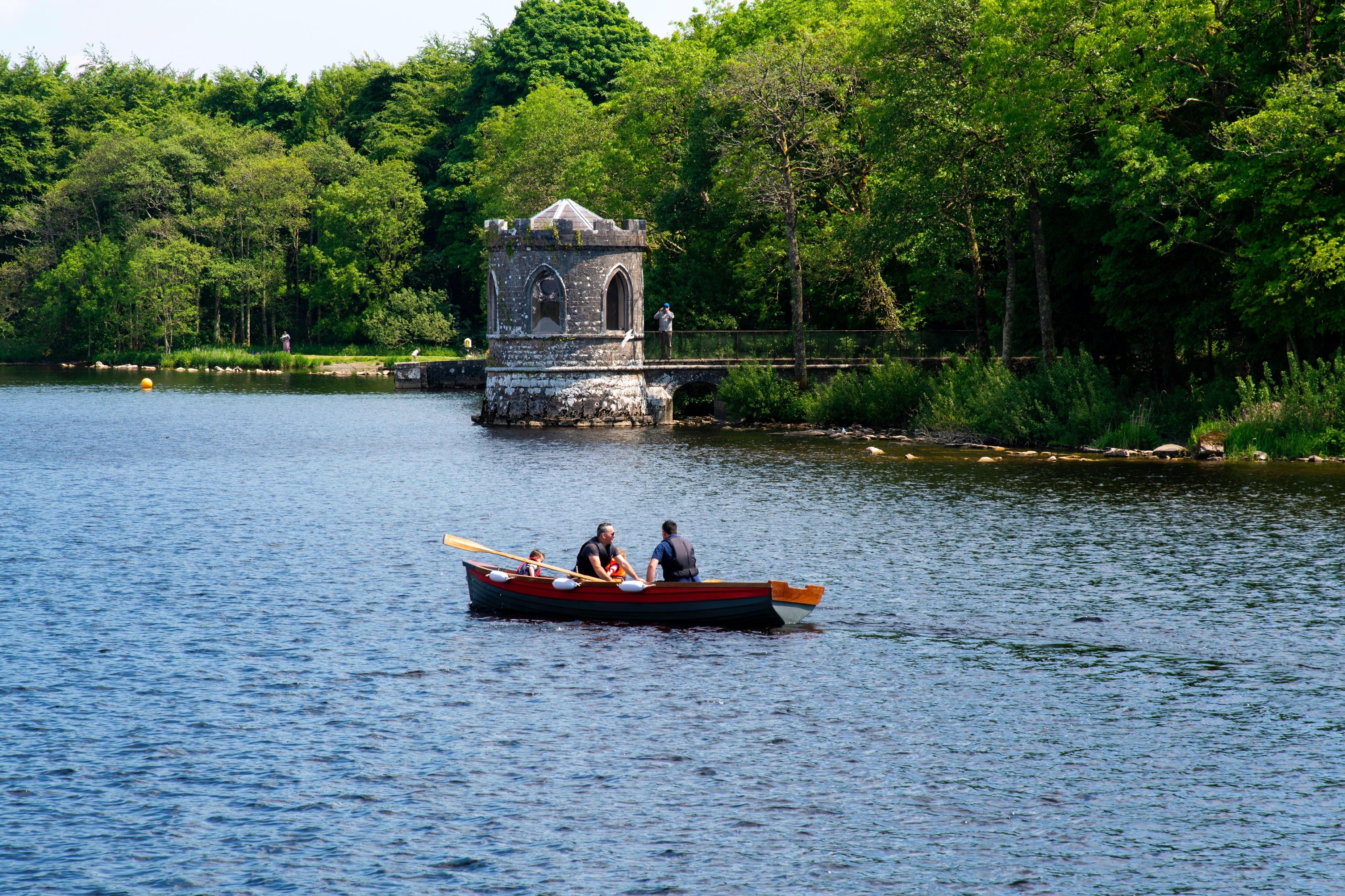
• At the same time, a number of other motivations are also present, including Adventure, Social Energy and Time Out.
• A wide range of activities are engaged in, with those outdoor being the most important. For families, this provides engagement for children and an experience that family groups can share and remember.
• With family groups tending to be larger, self-catering is a popular accommodation option, alongside unpaid accommodation where possible. Staying in holiday homes or with relatives in the area allows families to take away some of the associated holiday costs, and achieve a better value break away. Families also tend to book their breaks well in advance.
• IHH under indexes on Exploration.





• Social Energy is the most popular motivation for Dublin, with consumers enjoying the vibrancy and energy of the area, taking in the surroundings, and feeling the atmosphere that’s created from being around other people. Within this, enjoying the nightlife or relishing and engaging in lively festivals or events are key activities for consumers.
• Adventure over-indexes for Dublin through the availability of a range of outdoor activities, such as cycling or walking.

• Time Out is also present as a motivation for consumers of all age groups, particular, couples. This motivation is met through activities such as cultural attractions, shopping or spa trips.
• Bonding and Exploration under index in Dublin. Despite having a variety of activities to do in the city, domestic consumers are unlikely to consider Dublin as a destination to meet these motivations.






Multiple stages of research and analysis were applied to help unpack a motivational framework that is fit for purpose:
Discovery and exploration through qual research
Desk review and trends
Cognitive Interviews, n=24
Travelogues
Enhanced Visual Analysis
Workshop – Hypotheses Segments
Deep dive into occasions through quant research
Online nationally representative quantitative study of n= 3,324 respondents across ROI & NI
Focused on two most travel occasions between Sept 2019-Oct 2021
Data exploration and modelling of the motivations
Identifying key aspects of trip occasions
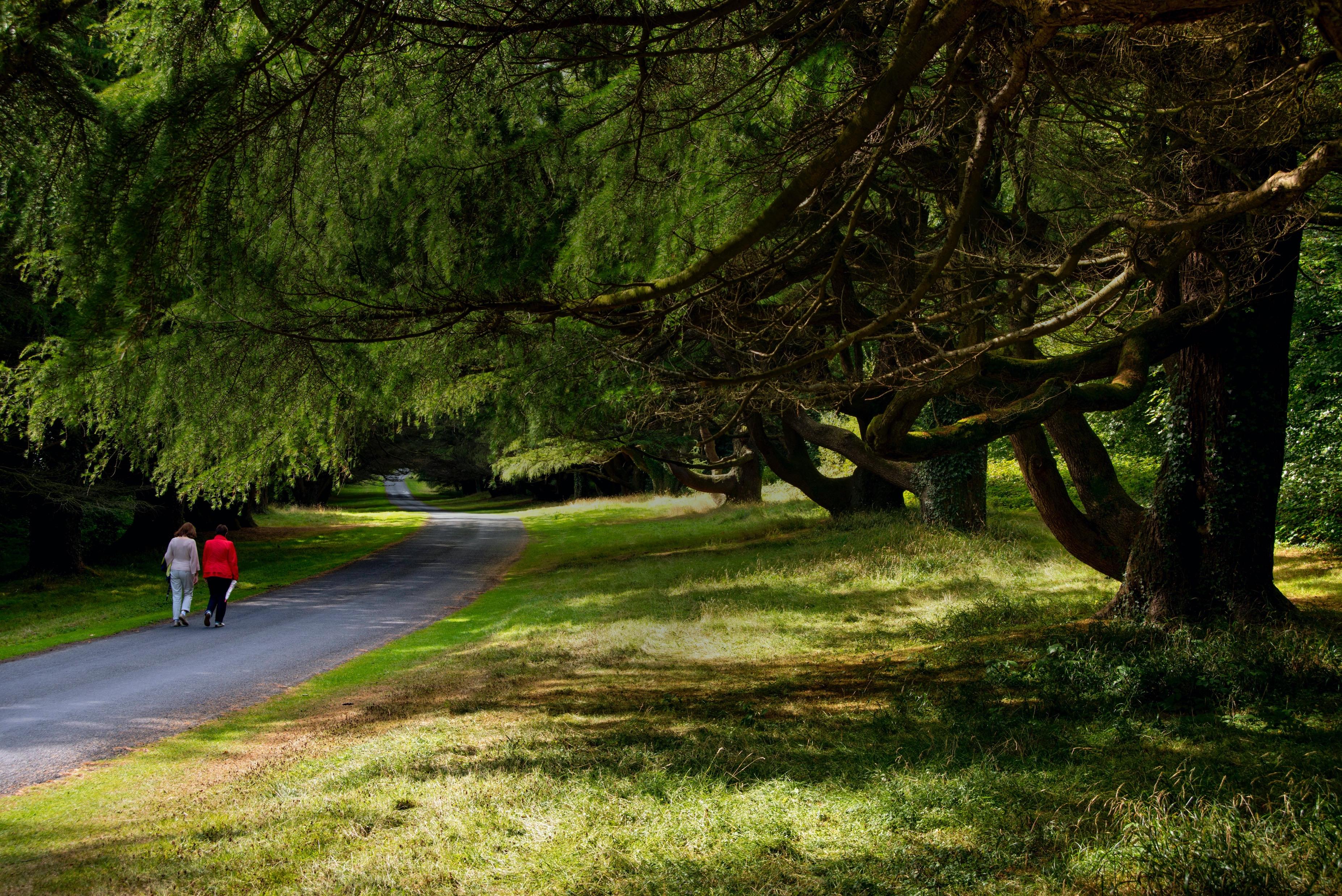
Explore hidden dimension that lay beneath to unpack the motivations
Creating the motivations and framework
Statistical clustering technique
Defining the motivations
Determining the size of the motivations
Multiple stages of research and analysis were applied to help unpack a motivational framework that is fit for purpose.
The qualitative phase commenced with a discovery and exploration phase. This helped identify the macro cultural trends at play and the impact on future travel.

Unpacking past and future motivations and behaviours, along with consumer context was gathered through a series of stages (Interviews, Travel diaries and EVA - Enhanced Visual Analysis.) EVA is a unique approach that collects user generated content, which clusters these images together to highlight themes and where true opportunities lie.
Respondents were recruited based on those who would consider travelling in Ireland in the next 6 months and are the key decision maker when it comes to travel planning. A mix of Active Multi Breakers (2+ annual domestic and international trips (excluding sun holidays) and Domestic Passives (haven’t travelled domestically in the last 18 months).
Developing hypothesised segments helped clarify what manifestations could be leveraged for the business and brought forward into the quantitative phase.
The quantitative phase consisted of an online study with a robust sample size of 3,324, of adults aged 18+, across ROI and NI. Centred around two occasions – respondents were asked to focus on two most recent domestic trips during the period September 2019 - October 2021.


Data was weighted to be nationally representative of age, gender and social grade. Occasion weighing was also applied.
Factor and cluster analysis was incorporated into the quantitative phase. It was designed to create statistical grouping to simplify tourist’s attitudes and needs, such as functional and emotional ones. The groupings identified, helped explain the complexity of who people are and what motivates their choice.
Driver analysis was also integrated to help understand the different variables that drive choice/ intent. This assisted in the development of the framework construct.
Data was weighted to be nationally representative of age, gender and social grade
Developing the motivational framework was the essence of the quantitative stage. Applying the thinking of - Who, What, Where, When and Why, helped position the framework foundation. Each motivation was carefully sized through in-depth analysis of the data.
Culture coding and semiotic analysis were explored to help bring the identified segments to life. For brands, culture is known to provide meaning, ideas and value, as it is a way to talk to people. Unlocking the meaning behind everyday things brings fresh perspective and challenges thinking. Semiotics explores signs and symbols, which can portray ways for brands to become more meaningful.
Colour can influence thinking, inspire decision making and impact moods. Colours were carefully selected to bring each motivation to life, keeping in mind the different symbols colours portray, the effects colour can have and positive/negative association of colour. Exploring colours in detail provided an additional layer and meaning behind each motivation.
Seven motivations known as Social Energy, Adventure, Exploration, Reconnection, Time Out, Bonding and Celebration were identified and have been brought to life. These motivations have constructed and defined the motivational framework.


